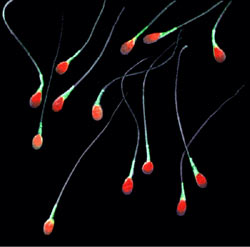Generations later, the rights of donor-conceived people are becoming law
By Naomi Cahn and Sonia Suter,
The Hill
| 04. 23. 2022
Colorado Senate president Steve Fenberg has just introduced groundbreaking legislation on the rights of donor conception. Although focused on Colorado, that legislation could affect the multi-billion-dollar fertility industry and the tens of thousands of children born each year from donor conception.
The Colorado legislation goes beyond what any other state has done. It provides that, once they turn 18, donor-conceived people can learn the identity of their donor. In addition, it sets limits on the number of families who create children through any particular donor and requires the creation and availability of materials that provide guidance for donor-conceived people, recipients and donors throughout the process, including disclosure to donor-conceived children.
In considering such legislation, Colorado has stepped into a vacuum. At the national level, there’s an absence of clear rules and laws regulating assisted reproductive technology. The federal government requires only that donated sperm and eggs be treated like other human tissue and tested for communicable diseases — infectious conditions that spread through viruses, bacteria and other means — but not genetic diseases. There are also no federal requirements...
Related Articles
By Dana Mattioli, The Wall Street Journal | 04.15.2025
Image "Elon Musk" by Debbie Rowe on Wikimedia Commons
licensed under CC by S.A. 3.0
Ashley St. Clair wanted to prove that Elon Musk was the father of her newborn baby.
But to ask the billionaire to take a paternity...
By Emma McDonald Kennedy
| 04.24.2025
A Review of Eggonomics: The Global Market in Human Eggs and the Donors Who Supply Them by Diane M. Tober
A recent journalistic investigation of the global egg trade at Bloomberg put the industry’s unregulated practices and their exploitative implications back in the spotlight. Diane Tober’s book Eggonomics: The Global Market in Human Eggs and the Donors Who Supply Them, published in October of last year, delves even more deeply into the industry with a thorough examination of egg...
By Sarah Jones, Intelligencer | 04.17.2025
From the Natalism website
Elon Musk may not have appeared at the Natal Conference in Austin, Texas, this year, but he didn’t have to. The very concept of pronatalism owes its current prominence to him and his obsession with fertility...
By Staff [cites CGS' Katie Hasson], Radio New Zealand | 04.05.2025
At a time where some countries are struggling with low birth rates, the voices for pronatalism are getting louder. But it’s who’s sounding the call for more babies that has people talking.
Tech giant Elon Musk has fourteen children and...




